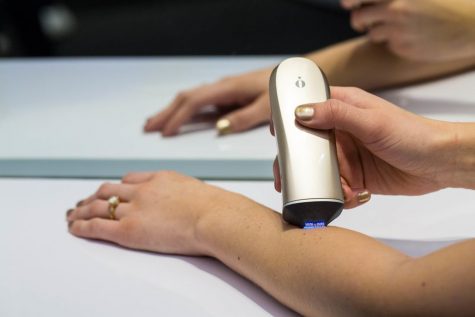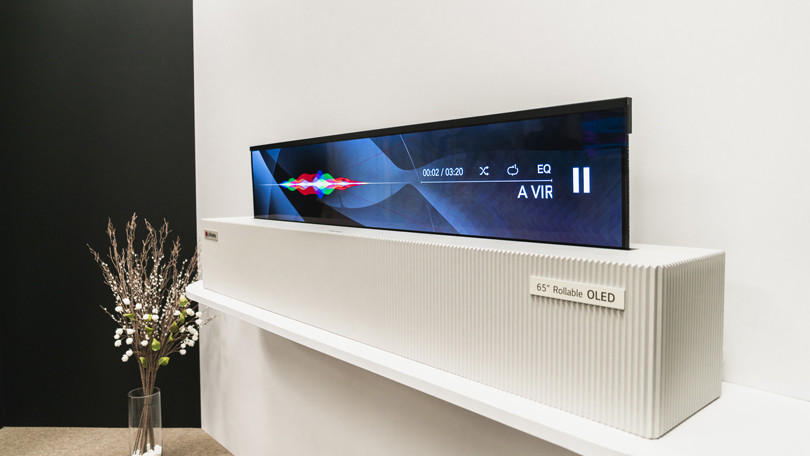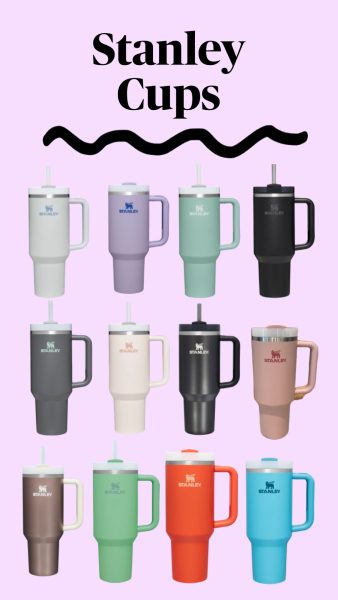The Future of Technology
What the Consumer Electronics Show Had to Offer
LG has unveiled their new rollable OLED TV at the CES.
January 18, 2019
As one of the biggest events for the technology industry, the yearly Consumer Electronics Show (CES) that took place this recent January 8th to 12th was absolutely filled with striking new innovations. Through the convention, over 4,500 exhibitors showcased the world’s newest technological innovations for more than 180,000 attendees in roughly 2.9 million net square feet of
exhibit space. The convention brought together companies and products covering everything from artificial intelligence to smart cities to digital health, setting the stage for the next year in technology.
One of the most discussed topics at the convention was 5G; Intel, Qualcomm and Samsung all noted the possibilities in the new technology in “connect[ing]more devices and appliances to each other and [handling] more data in the process” (Independent). 5G could also benefit self-driving cars and robots, the increased speed offering a wider variety of options and capabilities.
Unfortunately, there was a notable debate over the very definition of 5G, and both AT&T and Verizon added fuel to the fire by claiming that they were the first to use 5G. In particular, AT&T Meanwhile, the South Korean company KT Corporation, South Korea’s largest telecommunications company, claimed that they have already “officially launched [a] 5G network commercial service through an AI-equipped robot named Lota.” However, considering the lack of actual products that could support 5G, as of now, it really is nothing more than a buzzword.
Of course, artificial intelligence was also a common theme throughout the convention- especially considering how it could apply to such a wide variety of industries. During his opening keynote, IBM’s CEO discussed “how AI will prove data is the ‘world’s greatest natural resource,’ enabling revolutions from smart cities to health care, transportation to robotics.” Similarly, both Delta CEO Ed Bastian and the Walmart of Food Charles Redfield “shared examples of AI and blockchain technology in their businesses” (Robotics Tomorrow).
In terms of specific products or innovations that stood out at the convention, there were plenty. LG’s rollable OLED TV, a TV that can actually roll up into a small container when not in use, was one of the most incredible. Furthermore, it is set to go on sale this year, with an estimated 17 years of usage possible. Sarah Chen (11) describes the TV as “really effective,” an innovation that will “really shape our future.”

The Opté Precision Skincare System is set to revolutionize skin care.
A rather unexpected innovation was in the makeup industry, in the form of the Opté Precision Skincare System. The handheld device can “scan your face with a tiny camera at 200 frames per second and detects darkness like sunspots, freckles or moles.” Then, it “applies a precise amount of makeup or serum via 120 thermal inkjet nozzles inside the wand that deposit 1,000 picoliter droplets (that’s one billionth of a liter) to precisely cover each spot or blemish.” The products that the Opté Precision Wand can apply include everything from “mineral pigment (makeup), moisturizer or spot-lightening skincare serum” (CNET).
The LG rollable OLED TV and the Opté Precision Skincare System are just two examples of a truly diverse and innovative range of new technology that the CES saw. Clearly, they showcase the many possibilities the technology industry is set to explore this year, and the future certainly looks bright.





















